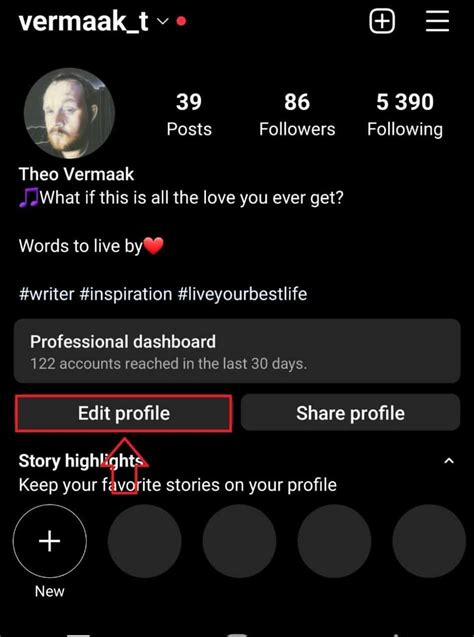Lubbil - All About Gardening
What are the disadvantages of visual communication?
What is the Dean's List and President's List?
Why most of LED headlights and bulbs are 6000K?-Headlights | Fog lights | Auto Parts GENPLUS
Advantages of Photo Editing for your Business
13 Filipino Wedding Traditions
12 Famous People Who Struggled With Dyslexia Before Changing The World
Can You Put Middle School Achievements on College Application?
Avon Bottles - A Beginners Guide To Collecting — Vintage Virtue
Here's What You Need to Know About Untreated Lyme Disease
4 Bad Mission Statements (and How To Do Better With Yours) [Infographic] - brafton %
You Can Now Buy a Texas Ranch That's the Size of a Small Nation, For $725 Million
How to Create Amazing Day to Night Photography
Sapphire: The Essentials Suite Of Award-Winning VFX Plugins | Boris FX
MicCostumes Reviews - 3.0 Stars
4 Steps to Mobile Deposit a Check on Cash App (2023)
Are 26 inch thighs and quads big?
Best Photo Viewer Apps for Windows 11 (Free and Paid)
“Running Man” Cast Faces Off In Popularity Contest Using Search Term Data
Human Rights Watch - WCADP
What Is the Most Attractive Face Shape?
The 8 Most Expensive Cars in Forza Horizon 5 - Rarest.org
Es ahora o para siempre
12 Songs About Losing Someone That Will Help You Grieve
Best Vines to Grow on Fence for Privacy
Do you know who made the red glass 1876 Cape Cod collection for AVON?
The Most Common Problems With Progressive Lenses
Log in or sign up to view
Acoustic Reflexes
Why Some Artists Fail And Others Succeed || Dotted Music
52 Inspirational Words and Quotes to Create a Better Mindset + Floral Printables - ProFlowers Blog
12 Tips For Selling Your Home - HomeOwners Alliance
Acceptable levels of distortion in the mains supply system | EEP
How to Install a Picture-Frame Deck Border - Fine Homebuilding
Why Does Pasta Come in So Many Different Shapes and Sizes?
Les personnes les plus riches du monde : Qui sont les membres du club des 100 milliards de dollars ? - BBC News Afrique
10 Ways to Tone Your Thighs
How to Find (& Catch) Shiny Meltan in Pokémon GO
Photographers set to face equipment shortages in 2022
13 Reasons Why You Should Travel to The Philippines Now | Guide to the Philippines
25 Key Graphic Design Statistics & Facts To Know in 2024
Canon 16-35 f4 IS: Astrophotography Talk Forum Forum: Digital Photography Review
The 321 Ribs Method Explained -Traeger Grills
These Are the Most Famous Photos of All Time According to a New Study
Use These Colors on Your Computer Screen to Protect Your Eye
Smoked Short Ribs: Temperature Is the Recipe for Success
Grand Union Flag | Revolutionary War, Continental Army, 13 Colonies
Trellises and cages to support garden vegetables
Can You Teach in Texas With a Florida Certification?
Popular Posts
Reinstalling and patching your Quicken Subscription version after your membership has expired (Quicken for Mac)
Quicken Subscription Membership FAQs
Reinstalling and patching your Quicken Subscription version after your membership has expired
Quicken Review (2023): Features, Pricing & More
How Do I Manage My Quicken Subscription?
Quicken for Windows Release Notes
Quicken: Your Comprehensive Guide to Effortless Financial Management
404-page
What is the Quicken Cloud?
Plans & Pricing | Quicken
Quickbooks vs. Quicken: What's the Difference?
12 Best Quicken Alternatives for 2023 (#1 is Free) – RobBerger.com
Quicken on the Web Frequently Asked Questions
Which Quicken Is Best for You?
Is Quicken Going To Be Discontinued
Unable To Open Quicken for Windows After Updating To The Latest Patch
Quicken Deluxe Review
- Downloading transactions
Size or Capacity Limitations of a Quicken Data File
How to Back up or Restore Your Quicken Data
Running two versions on one PC
Where to find your subscription membership expiration date
How do I move/transfer my Quicken data file from one computer to another?
Quicken Vs. QuickBooks: Which Is Best For Your Business?
Mint VS Quicken Comparison
Currently Supported Quicken Products (Discontinuation Policy)
Quicken Review 2024: Better Features Worth The Cost?
Quicken Performance Troubleshooting
What's the Difference Between Simplifi and Quicken?
Why do I see a charge from Quicken for $1.00?

Your Name Without Space Between Letters And Words : How To Add Spaces In Instagram Captions And Bios Shane Barker - Or, you can change the vertical space between paragraphs in your document by setting the spacing before or spacing after paragraphs.
Quicken Review 2023: Features & Pricing, Pros & Cons
How To Delete an Account
Quicken for Windows: Creating a Year-end Copy At the End of the Calendar Year
Mint vs. Quicken
Mint Budgeting App Review 2023
Quicken 2018 - Now With Subscription Fees! | Bruceb Consulting
Can I save each calendar year as a separate file?
Quicken vs. Mint | Which Is Better at Managing Your Money in 2023?
Quicken Online vs Desktop: Is Quicken Desktop or Online Best?
Can I delete all of old backup files and just keep the current one
Elevate Your Financial Management with Mint: A Comprehensive Guide
The best free budgeting app for tracking your money
The 3 Best Alternatives to Quicken Software
I'm Missing Some Transactions or New Transactions Did Not Download From My Bank (Quicken for Windows)
De-activate registration prompt | Quicken 2012 - Tips
Money in Excel vs Quicken - Which Is the Best for Finances?
What Is Spacing and Kerning and Why They Are Crucial To Typography | HipFonts